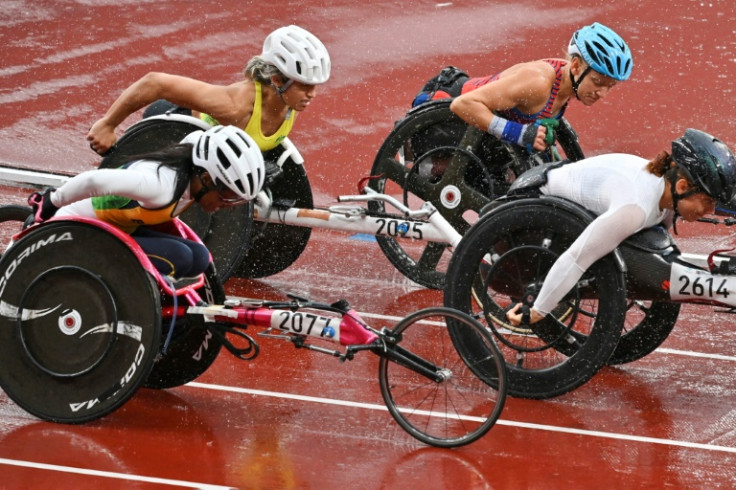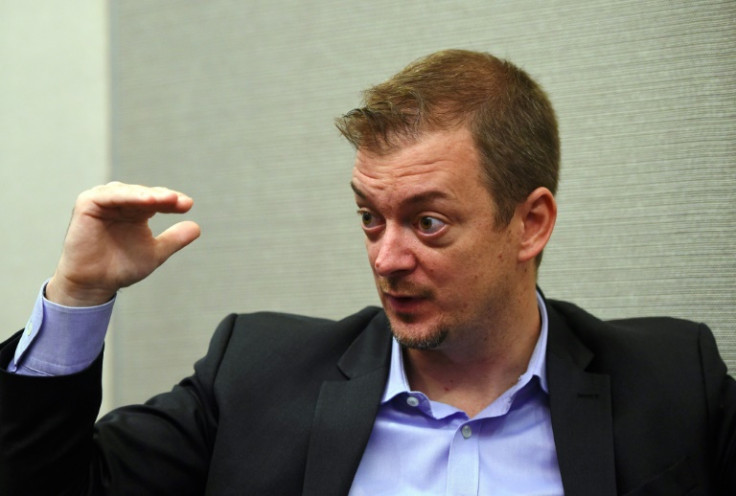Paralympics Chief Hopes For Full Stadiums And Extensive TV Coverage In Paris

International Paralympic Committee president Andrew Parsons has told AFP he hopes the Paralympics in Paris will take place in full stadiums and predicted the TV coverage would be the most extensive in history.
The 16th Summer Paralympics take place in the French capital from August 28 to September 8, just over two weeks after the Olympics.
In an interview six months before they open, Parsons said his priority was to ensure the competition attracts packed audiences.
Less than one million tickets out of a total of 2.8 million have been sold so far, but the IPC president insisted that was a "normal" situation this long before a Paralympics.
"We are working with the organizing committee to make sure that we have full stadiums in Paris," said Parsons, a Brazilian who has been in charge of the IPC since 2017.
"We have some sports that are nearly sold out. We are satisfied where we are, but of course we need to push for more.
"We are very pleased with the preparation so far. We're in this moment where all the operational plans are ready.
"We have learned from the test events, and we are now in the moment where what we need to focus on is the fine-tuning of some of the operations. We are all focused on the promotion of the Games," he added.
To achieve the goal of full stadiums in Paris, the IPC are deploying a myriad of campaigns through different channels such as social media, traditional media and national Paralympic committees to spread the word and "(make) people raise the excitement around the Games... (and be) aware, informed, wanting to buy tickets and to watch it on TV".
Contrary to the Olympics, ticket sales for Paralympics typically soar closer to the start of the Games.
At the 2016 Paralympics in Rio de Janeiro, organizers reported a strong spike in purchaser appetite in the weeks leading up to the event, with the overall number of tickets sold doubling over a 48-hour period two weeks before the Games opened.
If ticket sales are currently following "a normal graphic line for the Paralympics", Parsons said media coverage for the Games had already surpassed that of previous editions.
Broadcasting agreements have been secured in more than 160 nations and territories, constituting the "biggest number ever", he said.
In the wake of the decision to partially ban the Russian and Belarusian national committees from the Paralympics over Moscow's invasion of Ukraine, Parsons said the IPC were still ironing out the final details that will allow some athletes to compete as neutrals.
"The decision also tasked the governing board to develop the eligibility criteria and the conditions that will be placed on neutral athletes," he said.
"So, we are still working on that. We still have time."
He said the IPC "cannot only copy and paste what the IOC did" in banning most Russian and Belarusian competitors from the Paris Olympics over the situation in Ukraine.
"But, of course, we can learn from them and see what is feasible in our movement and what is not."
Conversely, Israeli and Palestinian competitors are both set to participate in Paris despite the ongoing war in Gaza, according to Parsons.
"The national Paralympic committees of Palestine and of Israel have not used the Paralympic movement (for) any kind of political messages. So far there is nothing to report on both NPCs. No investigation, no suspension, anything like that," he said.
The IPC president also addressed potential fears regarding security in Paris, saying he was confident in the authorities' ability to "provide a safe environment, not only for our athletes but for spectators, volunteers, everyone working in the Games".

© Copyright AFP 2025. All rights reserved.





















